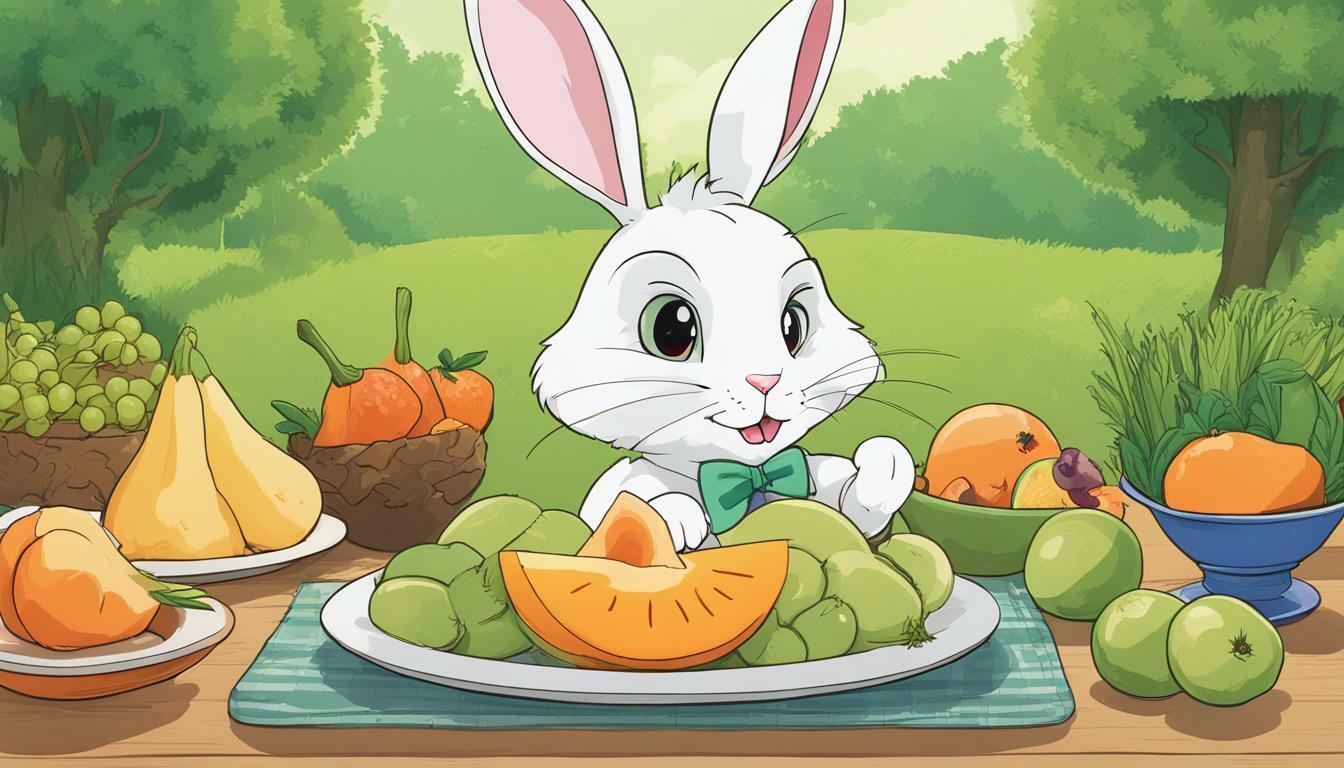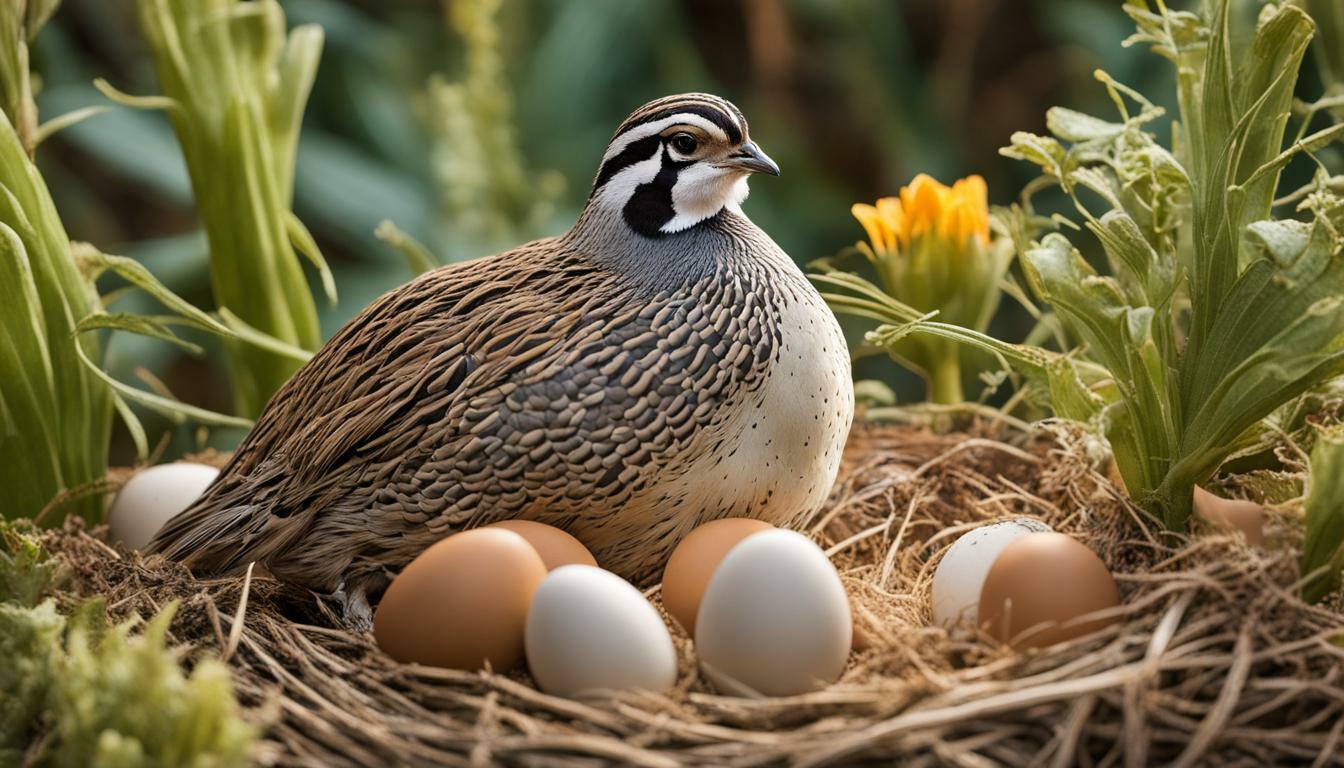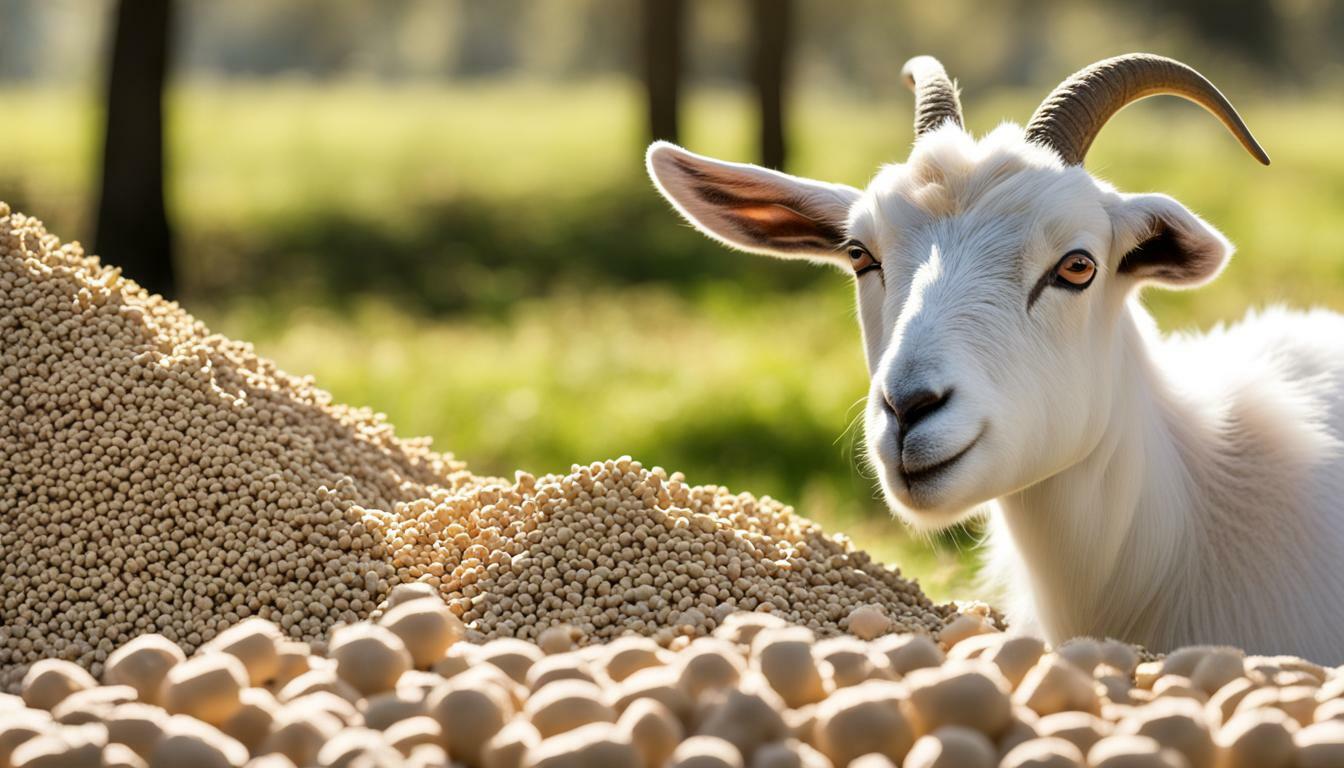Can Rabbits Eat Cantaloupe? Find Out Here!

Table of content:
- Key Takeaways on Feeding Cantaloupe to Rabbits:
- Can Rabbits Eat Cantaloupe Rind?
- Is Cantaloupe Good for Rabbits?
- How Much Cantaloupe Can Rabbits Eat?
- What Are the Benefits of Feeding Cantaloupe to Rabbits?
- Are There Any Risks With Feeding Cantaloupe to Rabbits?
- How Should You Prepare Cantaloupe for Rabbits?
- Can Baby Rabbits Eat Cantaloupe?
- Do Wild Rabbits Eat Cantaloupe?
- What Other Fruits Can Rabbits Eat?
- Is It Okay to Give Rabbits Cantaloupe Everyday?
- Final Thoughts on Rabbits and Cantaloupe
Cantaloupe is a popular fruit that many pet rabbit owners wonder if they can feed to their bunnies. This sweet melon contains important vitamins and minerals, but also has high amounts of natural sugar.
So can rabbits eat cantaloupe? Rabbits can eat cantaloupe in moderation as an occasional treat. Cantaloupe provides rabbits with hydration, vitamins, minerals, and fiber. But it should only make up a small part of a rabbit’s diet due to the high sugar content.
Key Takeaways on Feeding Cantaloupe to Rabbits:
- Cantaloupe can be fed to rabbits in small amounts as an infrequent treat. It should not be a staple food.
- Focus on feeding the fleshy part of the melon rather than the rind or seeds.
- Introduce new foods slowly and watch for any signs of diarrhea or digestive upset.
- Chop cantaloupe into rabbit-sized pieces for easy eating.
- Provide no more than 2 tablespoons of chopped cantaloupe 2-3 times per week.
- Cantaloupe hydrates rabbits due to the high water content.
- Cantaloupe provides vitamins A, C, and B-vitamins. It also contains minerals like potassium.
- The natural sugar in cantaloupe means it should only be a small part of a rabbit’s diet.
Below we will cover in more detail if and how rabbits can eat cantaloupe safely. We will also discuss:
- The nutrition benefits of cantaloupe for rabbits
- The potential risks and precautions
- How much to feed rabbits
- The best ways to prepare cantaloupe
- If wild rabbits and baby rabbits can also eat this fruit
Can Rabbits Eat Cantaloupe Rind?
The fleshy orange interior of the cantaloupe provides the healthy nutrients for rabbits. Rabbits should not eat the tough outer rind of a cantaloupe.
The rind is difficult to digest and may cause gastrointestinal (GI) upset or blockages. It also does not contain very much nutritional value. It’s best to peel off the rind and just feed the soft inner fruit to bunnies.
You should also avoid feeding rabbits the seeds and strings found in the flesh of the melon. While not inherently toxic, they can be a choking hazard or cause intestinal blockages if swallowed whole.
Is Cantaloupe Good for Rabbits?
Cantaloupe can provide some beneficial nutrition for rabbits. In particular, it gives two important components:
- Hydration: The high water content of cantaloupe (about 90%) helps keep rabbits hydrated. This is especially helpful in hot summer months.
- Vitamins & Minerals: Cantaloupe contains decent levels of vitamin A, vitamin C, and several B vitamins like folate. It also provides minerals like potassium and magnesium.
However, cantaloupe is naturally very high in sugar. This means it should only be fed in moderation.
Too much sugar can lead to obesity, gastrointestinal issues, and an unhealthy diet. The natural sugar found in fruit is fructose, which is difficult for a rabbit’s digestive system to process in high amounts.
While cantaloupe can provide some nutritional benefits, it should not be a staple food item. Hay, leafy greens, and pellets should make up the bulk of a domestic rabbit’s diet.
How Much Cantaloupe Can Rabbits Eat?
When feeding cantaloupe to rabbits, moderation is key. This fruit is best given as an occasional treat 2-3 times per week.
As a general guideline, the daily amount of cantaloupe for a typical medium-sized adult rabbit is:
- 1-2 tablespoons chopped cantaloupe flesh
- OR around 2 ounces by weight
For giant breed rabbits, up to 1/4 cup chopped cantaloupe can be fed. Tiny dwarf breeds need less.
Remember that any fruits or vegetables should not exceed 10-20% of your rabbit’s total daily calories. Their main food source should still be hay and leafy greens.
Start conservatively with new treats. Once you see the cantaloupe does not cause any digestive upset, you can gradually increase portions within the recommended limits.
What Are the Benefits of Feeding Cantaloupe to Rabbits?
In moderation, cantaloupe can provide several advantages:
- Hydration – The high water content helps keep rabbits hydrated. This is very helpful on hot summer days when rabbits need extra fluids. Dehydration is dangerous for rabbits, so cantaloupe provides a tasty way for them to get water.
- Vitamin A – Cantaloupe contains high amounts of vitamin A in the form of beta-carotene. This vitamin supports eye health, growth, and a strong immune system.
- Vitamin C – Cantaloupe provides vitamin C which promotes a healthy immune system and wound healing. Many leafy greens contain vitamin C as well.
- B Vitamins – Cantaloupe has several B vitamins like folate and choline. These aid metabolism and red blood cell production.
- Minerals – It supplies minerals like potassium, magnesium, and phosphorus. These help with muscle function, nerve signaling, bone strength, and enzyme reactions.
- Fiber – There is a decent amount of dietary fiber in cantaloupe which promotes healthy digestion and gut motility.
- Treat – The sweet flavor of cantaloupe makes it an enticing treat that rabbits enjoy. This makes training easier and provides enrichment.
As you can see, cantaloupe can add beneficial nutrition to a rabbit’s diet in moderation. Just be mindful of the sugar content by limiting portions.
Are There Any Risks With Feeding Cantaloupe to Rabbits?
While cantaloupe can be fed to rabbits safely in small amounts, there are some potential risks to be aware of:
- GI Issues – The high sugar and water content of cantaloupe mean it can cause diarrhea or upset stomach if too much is fed. Any new food should be introduced slowly.
- Weight Gain – Cantaloupe is relatively high in calories and sugar. Feeding too much may lead to obesity.
- Choking Hazard – The seeds, rind, or stringy bits can pose a choking risk if swallowed. Be sure to prepare the cantaloupe properly.
- Dehydration – Replacing too much water intake with cantaloupe hydration can lead to dehydration long-term if the rabbit stops drinking enough plain water.
With proper portions and preparations, these risks can be minimized. Pay attention to your rabbit’s individual reaction to cantaloupe as well.
How Should You Prepare Cantaloupe for Rabbits?
Follow these tips for preparing cantaloupe safely for rabbits:
- Wash the outside rind thoroughly before handling to avoid spreading bacteria.
- Cut the cantaloupe in half and scoop out the seeds and pulp.
- Using a paring knife, peel away the tough outer rind.
- Chop the inner orange flesh into small pieces no larger than 1/2 inch.
- To encourage foraging, you can hide pieces of cantaloupe around their enclosure.
- Refrigerate any uneaten cantaloupe within a few hours to prevent spoilage.
Avoid leaving large chunks of cantaloupe in the enclosure unattended. This can lead to gorging and digestive upset.
Also be careful not to cut yourself handling sharp knives. Supervise young children prepping cantaloupe.
Can Baby Rabbits Eat Cantaloupe?
Baby rabbits under 12 weeks old should not be fed cantaloupe. Their digestive systems are still developing and cantaloupe is too high in sugars.
Wait until around 4-5 months old to introduce small amounts of cantaloupe. Start with just 1-2 teaspoons initially to watch for any adverse reactions.
Always consult your veterinarian for advice on your particular rabbit’s diet and health. Diet needs may vary based on breed, size, and medical conditions.
Do Wild Rabbits Eat Cantaloupe?
Cantaloupe is not a food wild rabbits would naturally encounter often in the wild. But they likely would take advantage of eating discarded cantaloupe rinds if found.
Wild rabbits have a diverse diet of grasses, weeds, leaves, buds, and some fruits. They have a strong ability to adapt to different food sources based on availability.
While cantaloupe flesh provides nutrition, it would rare for wild rabbits to stumble upon it. Cantaloupe crops are heavily cultivated by farmers, not naturally occurring. But wild rabbits would enjoy cantaloupe as an opportunistic treat!
What Other Fruits Can Rabbits Eat?
In addition to cantaloupe, rabbits can eat a variety of other fruits in moderation. Some other fruits rabbits enjoy include:
- Apples
- Bananas
- Berries like blueberries, raspberries, blackberries
- Melons like honeydew and watermelon
- Peaches
- Pears
- Pineapple
- Plums
- Apricots
- Cherries
Fruits like citrus, grapes, and dried fruits are too high in acid or sugar and should be avoided.
As always, slowly introduce new fruits one at a time while watching for any digestive upset. And limit fruit to 10-20% of daily calories at most.
Is It Okay to Give Rabbits Cantaloupe Everyday?
Cantaloupe should not be given to rabbits on a daily basis. 2-3 times per week in small amounts is best. Daily cantaloupe feeding can lead to:
- Excess sugar intake
- Obesity
- Diarrhea
- Dehydration if replacing water intake
Plus rabbits enjoy cantaloupe more when it is given sparingly as a special treat. Limiting fruits also helps prevent developing a picky eater who refuses healthier foods like hay.
Rotate different fruit treats to provide variety. Examples include small amounts of apple, banana, melon, and berries a few times per week.
Focus the bulk of your rabbit’s diet on grass hay, leafy greens, herbs, and a limited amount of pellets. Then supplement with a sprinkling of fruits and veggies.
Final Thoughts on Rabbits and Cantaloupe
Cantaloupe can be a fun, healthy treat for rabbits in moderation. Just be sure to limit portions and frequency to prevent digestive and weight issues. Preparation is also key—only feed the flesh without rind, seeds, or strings.
Introduce new treats slowly while watching for adverse reactions. Each rabbit is an individual with unique nutritional needs and tastes.
Aim to provide a balanced diet with enough hay, leafy greens, and fiber. Supplement with fruits like cantaloupe for added nutrition and enrichment. Proper rabbit nutrition supports happiness and health throughout all life stages.
With some common sense precautions, cantaloupe can be a refreshing part of your rabbit’s diet during hot summer months! Just feed in small amounts 2-3 times per week at most.
Welcome. I’m Adreena Shanum, the proud owner of this website, and I am incredibly passionate about animals, especially poultry. I founded adreenapets.com as a labor of love, stemming from my desire to share my knowledge and experiences with poultry enthusiasts worldwide.




